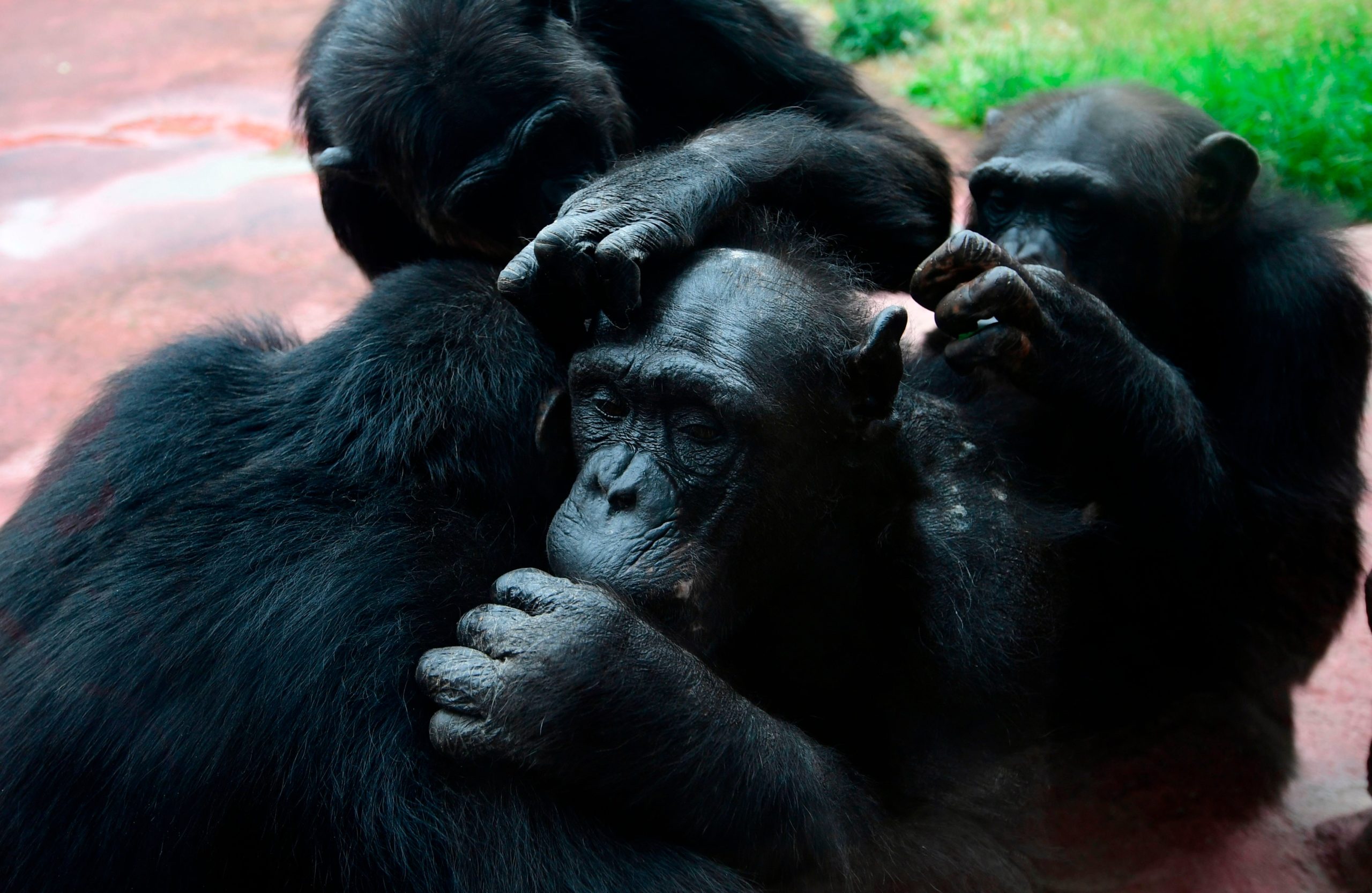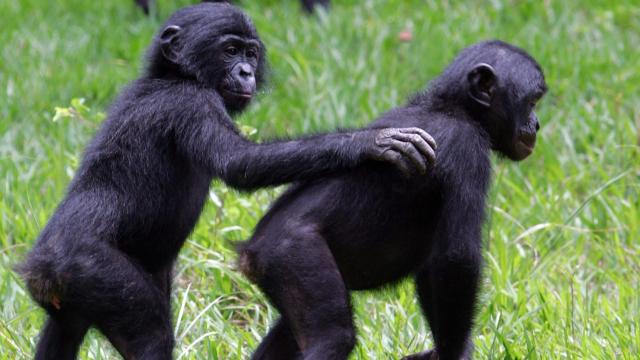You don’t walk up to a coworker without some sort of greeting, and you don’t end conversations simply by turning heel. There are rules to the game of social behaviour, and now a research team studying chimpanzees and bonobos say those great apes have social habits that look a lot like what we humans call “hello” and “goodbye.”
The research team observed over 2,000 interactions between chimpanzees as well as bonobos, another ape species closely related to humans. These salutations and farewells — which occurred about 78% of the time among chimpanzees and 90% of the time among bonobos engaged in cooperative activities — seem to come in the forms of physical contact and locking gazes between individuals, by which the animals party to the shared action can confirm that everyone’s on board. These “joint action phases,” as the researchers call them, seem to be a pretty common aspect of the apes’ social behaviour.
“Intriguingly, the pattern mirrored what we find in humans and what some people define as ‘social etiquette’ or ‘politeness’: when interacting with a good friend, you are less likely to put effort in communicating politely. In bonobos, a similar pattern is evident in the structure of the joint action phases,” said Raphaela Heesen, a researcher at Durham University in England and the study’s lead author, in an email.
It could be that the apes want to make sure everything is cool before, for example, proceeding with a play chase — you don’t want to start roughhousing with someone who isn’t interested, as they could take it the wrong way. But the researchers cautioned against viewing the apes’ behaviours too much through the lens of how humans behave.
Among the bonobos, the duration of the interactions seemed contingent on the social hierarchies within the group. The closer any two individuals were to each other, the briefer the greetings and departures were, the researchers found. The team posited that bonobos could tie up social context in their interactions more than chimpanzees because of the different ways the two ape groups organise; bonobos have more egalitarian social hierarchies than chimps, which are though to organise in rank based on physical aggression.
Besides eye contact, physical contacts like touching each other, holding hands, and butting heads were used to indicate the commencement and cessation of joint actions, which were often play or grooming. The researchers aren’t yet sure how those different forms of acknowledgements vary in their specific meanings, but they hope to pin down nuances in future observations, which will also look at other great ape species, like gorillas.

Chimpanzees and bonobos were a reasonable place to investigate the phenomena; the two species share over 98% of our DNA and diverged from us more recently on the evolutionary tree than other apes. How closely we’re related is a boon to primatologists, anthropologists, and social psychologists: The social capacities that we share (and those we don’t) can shed light on when different traits may have evolved in a way that no fossil remains can.
Heesen said that these entry and exit signals could change how we understand the differences between our own species and other primates. “Shared intentionality has been thought to be at the heart of human nature, allowing us to attain long-term goals that we would otherwise not be attainable by just one single individual,” she said. “The possibility that joint commitment as a process is present in our closest relatives sketches a picture of an evolutionary continuum of the evolution of social cognition and potentially challenges the long-held claim that joint commitment is special to humans.”
